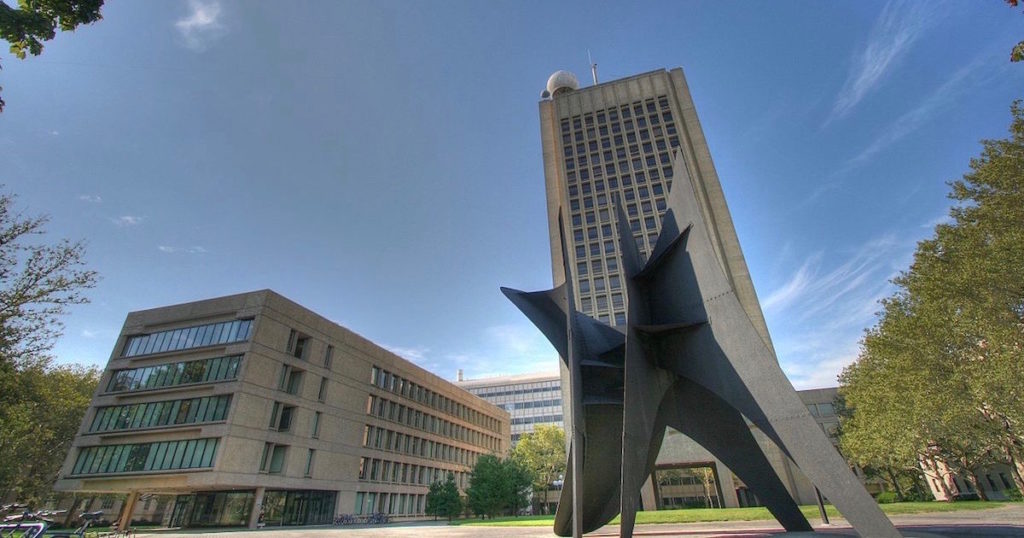 Intelligent Design
Intelligent Design
Should Scientists Play God? MIT Biological Engineer Says YES!

Editor’s note: We are delighted to welcome biochemist Dr. Emily Reeves as a new contributor.
That’s the topic raised in a recent TEDx talk by Dr. Erika DeBenedictis, an MIT doctoral graduate in biological engineering. Before you read any further, I encourage you to watch her 11-minute TEDx talk:
Dr. DeBenedictis takes a bold approach in the video, stating that scientists should play God. “Biology is imperfect,” she says. “Let’s make it better.” Her position, in short, is that biology is not well-designed and that, given the opportunity, scientists can and should finally “intelligently design” life.
She’s a likeable, enthusiastic, young scientist whose motivation for “playing God” seems to come from ambitious goals to change the world for good. As a recent PhD graduate myself, I identify with much of what DeBenedictis is trying to do and am equally enthusiastic about advancing applications of biological research.
And yet, I do not think that scientists should “play God.” As I hope to demonstrate in a series of posts, there is overwhelming evidence to suggest that biology is, in fact, incredibly well-designed. There is much we still do not know about biology, and labeling something as “poor design” often occurs when biological mechanisms are misunderstood (I will provide historical examples). Setting goals of making biology “better” without first undertaking a deep investigation into the biology could be very unwise. So how then should biological engineering move forward? By focusing on mimicking the design in biology we can improve human engineering and learn how to exploit nature safely for our unique purposes. Additionally, by recognizing the good design in biology when random mutation has corrupted it, we can also mobilize human intervention to restore that design.
Ever Heard of a Non Sequitur?
Here’s one. Dr. DeBenedictis makes the following statement.
Organisms are absolutely the most sophisticated machines we know of and they came about after 4 billion years of random chance.
Do you see it? The second statement (“4 billion years of random chance”) is hard to reconcile with, and hardly follows from, the first (“Organisms are absolutely the most sophisticated machines we know of”).
Commitment to evolutionary theory creates this sort of confusion in the natural sciences. Scientists observe “the most sophisticated machines we know of” in the natural world, with complexity and efficiency exceeding even the best examples of human engineering. But we are told to reconcile our observations within the consensus view that biology is the result of “4 billion years of random chance.” My perception is that DeBenedictis, like many others, has ignored the cognitive dissonance that commitment to “random chance” creates and has instead tried to rationalize the problem by looking for “poor design” in biology.
It’s Not Her Fault
This is what the academy teaches. Mutation (directed or random) can modify existing information when a strong “selective pressure” is present. This was nicely demonstrated by Dr. DeBenedictis with a directed evolution experiment she conducted using her intelligently designed Phage-and-Robotics-Assisted Near-Continuous Evolution (PRANCE) platform. But the creative power of mutation and selection in biology has been overestimated and few seem willing to acknowledge the limits. Despite little acknowledgement, the discipline of engineering (including the design of PRANCE) depends on intelligent design and foresight for all novel large scale innovations, thus testifying that no sophisticated machines outside of biology have an origin aside from intelligent design. Given that biology contains the “most sophisticated machines we know of,” a consistent explanation derived from observations of human engineering would be that biological machines are also the result of intelligent design.
The design hypothesis is not currently the consensus. However, as young scientists, we should courageously question what we are told, and follow the evidence wherever it leads. In that spirit (hoping Dr. DeBenedictis and others will follow), I will present an alternate perspective. I believe it shows that the best explanation for the origin of “the most sophisticated machines we know of” is in fact intelligent design. Taking that leap resolves the non sequitur. It provides clarity for how to advance engineering using biomimicry and repair biology when it has been damaged by deleterious time and chance mutations.
My goal in this post and subsequent posts is to increase the reader’s respect for how well designed biology actually is. I will argue that by respecting the sophisticated design in biology, we can actually be better scientists and engineers. I will review evidence of optimal design for three major pieces of biological infrastructure. Observations of optimality in biological systems should drive investigation into the extent of optimality in biology and should caution the labeling and attempted reengineering of poorly-understood mechanisms in biology until all of the relevant constraints have been considered. Only when we respect and acknowledge biological design can we have clarity for how to advance human engineering and rational justification for our role in correcting corrupted biological information.
